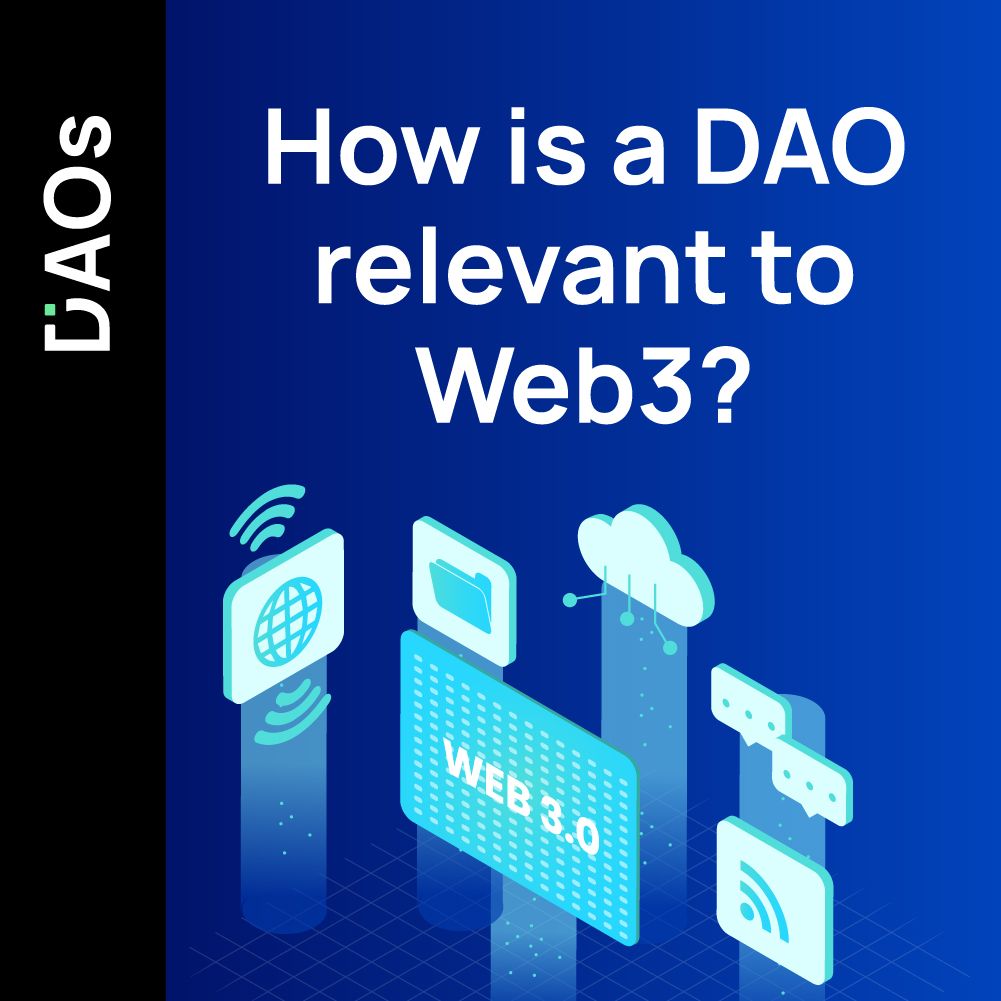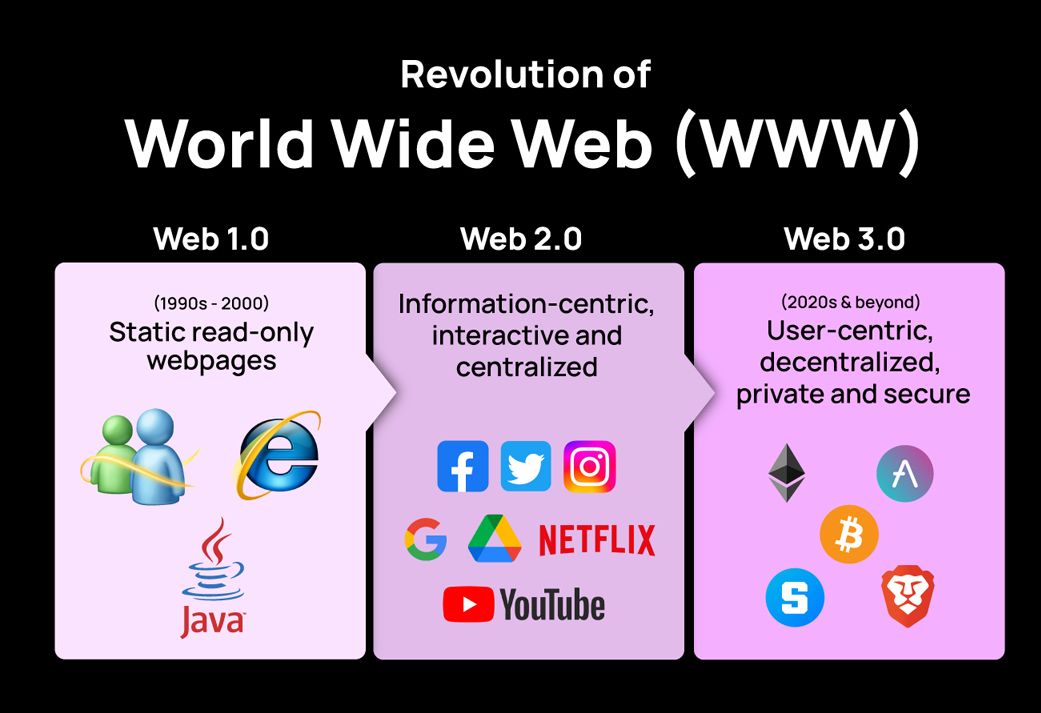15: How is a DAO relevant to Web3?

Web3 is the third iteration of the World Wide Web, incorporating concepts such as decentralization, blockchain technologies, and token-based economics. Web3 hugely differs from the current version of the World Wide Web (Web 2.0), where data and content are centralized in a small group of companies sometimes referred to as "Big Tech.
DAOs are a structure that executes these concepts to bring a new format of organizations that is gaining popularity worldwide. These organizations are community-oriented and can include the whole community in their activities, regardless of the domain of operation.
In this article, we examine the relevance of DAOs in the world of Web3.
What are DAOs, and how do they work?
DAOs or decentralized autonomous organizations are organizations with rules encoded in smart contracts that work on a blockchain. With a decentralized function, no single authority controls it, and the members run its operations through a voting mechanism.
Smart contracts form the fundamentals of DAOs. These are computer programs that exist on a blockchain and execute automatically on meeting their predetermined conditions.
Individuals cannot alter smart contracts alone. Making changes requires the consent of most of the DAO's members.
These smart contracts also hold together the DAO's treasury and are transparent, allowing everyone on the blockchain to see the rules of the DAO. A DAO's native governance tokens serve as a tool that lets you join a DAO. The tokens also grant voting rights to participate in important decisions.

How blockchain powers DAOs
The foundation of DAOs stands on blockchain because it provides a decentralized, safe, trustworthy ledger to track and control digital transactions by the DAO. Blockchain has a distributed consensus mechanism that ensures agreement among DAO's members through a shared arrangement of proposals, ensuring that the whole community's interest gets prioritized instead of a small group of individuals as in traditional organizations.
The web3 and blockchain-powered fabric of DAOs allow its members to prevent fraudulent activities better. Plus, it takes the concentration of power out of the equation. Its distributed network is safe and perfect for establishing flourishing businesses.
What is the relevance of DAOs in Web3?
Web3 or Web 3.0 is the latest version of the internet as we know it. The early phase of the internet was Web1.0 which was a "read-only" Web. Then, Web 2.0 entered the picture, bringing multiple possibilities for advanced websites and user-created content.
Web 2.0 is still active today, which includes prominent social media websites like Facebook and Instagram, video sharing platforms like YouTube, and blogging services like WordPress.
Today, we're at the cusp of a new era of Web 3.0, structured around blockchain technology and decentralization.
But there are still many details to work out. For example, there is a need for management systems to handle governance. DAOs (Decentralized Autonomous Organizations) have emerged to do this.
DAOs in Web 3.0
The DAO network perfectly syncs with the fabric of Web3, which fuels a new creator economy and opens up numerous possibilities in how we work.
For instance, Decentralized Finance (DeFi), the branch of finance that uses blockchain technology to provide financial services, employs DAOs in multiple ways. Through decentralization and delivering full customer benefits, they offer a firm ground for DeFi platforms to build a structured organization around and reach different markets.
Uniswap, Sushiswap, and Aave are examples of big DAOs in the DeFi domain playing their part in Web3.
Further, Web3 has given rise to the concept of DAO itself in the first place. Along with NFTs and metaverse, they come under the same umbrella of applications of Web3.
These features share asset ownership and self-sovereignty with the application of cryptocurrencies. Besides, it is possible to implement community governance and raise funds in unconventional ways that don't need VC funding.
There are multiple applications of DAOs in the world of Web3.
For instance, a category of DAOs known as Collector DAOs focuses on collecting NFTs by pooling together the community funds, allowing the whole community to be a part of valuable collectibles, giving each person a fractional share proportional to their investment. FlamingoDAO is a classic example of collector DAOs.
The community has collected NFTs from some famous artists such as Hackatao, Pak, and XCopy.
Every collector DAO may not succeed as expected, but it gives ordinary people a chance to invest in the most valuable NFTs without pouring all their money on them.
Conclusion
DAOs are a by-product of Web3, with blockchain technology and decentralization at its core of operations. With new applications mushrooming in the Web3 world every day, DAOs provide new opportunities to build, operate and own digital assets for everyone.

